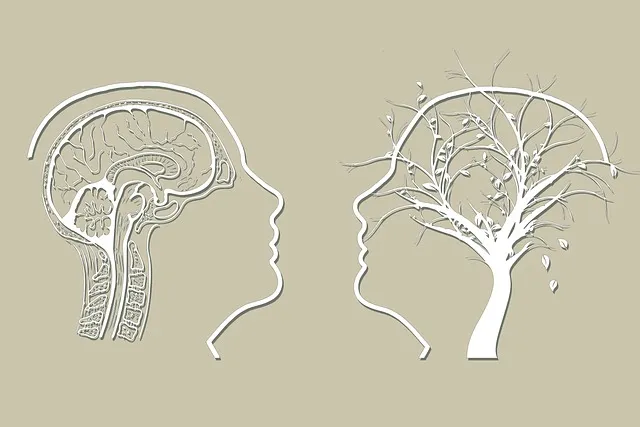The Broomfield Kaiser Permanente mental health facility employs an innovative, multi-faceted approach to combat stigma surrounding mental illness. Through mindfulness meditation, compassion cultivation, and burnout prevention strategies, they create a supportive environment. Educational workshops, awareness campaigns, and support groups bridge the gap between patients and communities, fostering empathy and understanding. Their holistic strategy includes Mind Over Matter principles, peer support, community outreach, and policy advocacy to reduce stigma, promote proactive mental wellness management, and empower individuals to prioritize their well-being.
Mental illness stigma is a pervasive barrier to seeking help, yet efforts to reduce it are gaining momentum. This article explores various strategies aimed at breaking down the walls of stigma, focusing on the initiatives led by Broomfield Kaiser Permanente, a pioneering mental health facility. We delve into educational programs that dispel myths, the power of community engagement and support groups, and policy changes driven by media representation. By examining these approaches, we hope to illuminate paths toward a more compassionate society.
- Understanding Stigma: Its Impact on Mental Health Seeking
- Broomfield Kaiser Permanente's Role in Combating Stigma
- Educational Initiatives: Breaking Down Misconceptions
- Community Engagement and Support Groups
- Policy Changes and Media Representation for a More Compassionate Society
Understanding Stigma: Its Impact on Mental Health Seeking

Stigma surrounding mental illness can have a profound impact on individuals seeking support and treatment. At Broomfield Kaiser Permanente mental health facility, we recognize that understanding the nature of stigma is a pivotal step in its reduction. It’s essential to acknowledge how societal perceptions and misconceptions contribute to the isolation and suffering of those battling mental health challenges. The consequences of stigma are far-reaching, often deterring people from reaching out for help or openly discussing their experiences.
Mindfulness Meditation and Compassion Cultivation Practices have emerged as effective tools in combating these negative effects. By promoting self-awareness and empathy, these strategies encourage a more compassionate approach to mental health seeking. Additionally, Burnout Prevention Strategies for Healthcare Providers play a crucial role in fostering an environment where patients feel understood and supported, ultimately reducing the barrier of stigma and encouraging proactive mental wellness management.
Broomfield Kaiser Permanente's Role in Combating Stigma

Broomfield Kaiser Permanente stands as a beacon in the fight against mental illness stigma. As a leading mental health facility, they actively employ various empathy-building strategies to foster understanding and acceptance within their community. Through educational workshops, awareness campaigns, and support groups, Broomfield Kaiser Permanente bridges the gap between people living with mental health conditions and the broader society. These initiatives not only dispel myths but also promote a culture of compassion and solidarity.
The facility’s approach extends beyond mere treatment; they empower individuals through confidence-boosting programs that encourage self-acceptance and resilience. By integrating mind over matter principles, Broomfield Kaiser Permanente helps patients cultivate positive thinking and coping mechanisms, ultimately enabling them to navigate life’s challenges with enhanced mental fortitude. This holistic strategy not only aids in stigma reduction but also paves the way for a more inclusive and supportive environment where mental well-being is prioritized.
Educational Initiatives: Breaking Down Misconceptions

At the Broomfield Kaiser Permanente mental health facility, educational initiatives play a pivotal role in stigma reduction. Through workshops and informational sessions, the facility leverages Mind Over Matter Principles to break down misconceptions about mental wellness. These programs often focus on educating both patients and the broader community about the nature of mental illness, its various forms, and the importance of early intervention. By fostering open conversations using Communication Strategies, participants gain insights into the lived experiences of those affected by mental health conditions, thereby promoting empathy and understanding.
These educational efforts extend beyond traditional classroom settings, utilizing innovative methods to reach diverse audiences. Interactive sessions, peer support groups, and community outreach programs all contribute to a more nuanced and accurate perception of mental illness. By addressing common myths and stereotypes, the Broomfield Kaiser Permanente mental health facility aims to create an environment where individuals can seek help without fear of judgment, ultimately reducing stigma and encouraging proactive mental wellness management.
Community Engagement and Support Groups

In the fight against mental illness stigma, Community Engagement and Support Groups play a pivotal role. Broomfield Kaiser Permanente mental health facility has recognized this and actively fosters such initiatives to create supportive networks. These groups provide a safe space for individuals facing similar challenges to connect, share experiences, and offer mutual encouragement. By engaging in open dialogues and participating in activities that promote self-awareness exercises and resilience building, members gain valuable coping skills development, which enhances their ability to navigate life’s hurdles with greater ease.
The supportive atmosphere within these groups encourages participants to challenge societal perceptions of mental health while fostering a culture of understanding and empathy. Through regular meetings, members learn from one another, gaining insights into different perspectives and strategies for managing their conditions. This collective approach not only reduces the isolation often associated with mental illness but also empowers individuals to become advocates for their own well-being, contributing significantly to overall stigma reduction efforts.
Policy Changes and Media Representation for a More Compassionate Society

Policy changes play a pivotal role in reducing the stigma surrounding mental illness. Organizations like Broomfield Kaiser Permanente’s mental health facility lead the way by advocating for evidence-based practices and integrating comprehensive services. By implementing policies that prioritize mental wellness, such as mandating insurance coverage for therapy and promoting early intervention programs, we can create a more inclusive society. These initiatives ensure that individuals seeking support receive it without barriers, fostering an environment where mental illness is understood and treated with compassion, rather than shame.
Media representation also holds immense power in shaping public perception. Portraying diverse individuals facing mental health challenges accurately and empathetically can dispel myths and reduce stigma. Encouraging the development of Social Skills Training and Resilience Building programs within media platforms, alongside Mental Wellness Coaching Programs, can contribute to a more compassionate society. When the public witnesses relatable characters navigating their struggles, it normalizes conversations around mental health, paving the way for increased acceptance and support for those in need.
Mental illness stigma, a significant barrier to recovery, can be overcome through collaborative efforts involving healthcare providers like Broomfield Kaiser Permanente, educational initiatives, community engagement, and policy changes. By fostering open dialogue, breaking down misconceptions, and advocating for compassionate media representation, we can create a more inclusive society that supports individuals living with mental health challenges. The comprehensive approach, highlighted by Broomfield Kaiser Permanente’s leadership in mental health care, offers hope for a future where mental illness is met with understanding and empathy, rather than isolation and shame.





